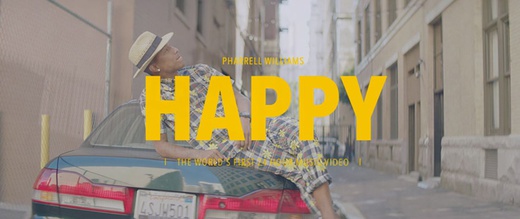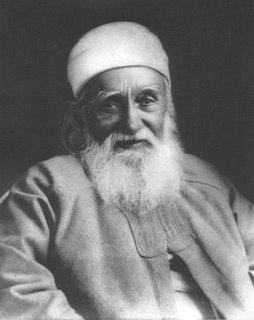The views expressed in our content reflect individual perspectives and do not represent the authoritative views of the Baha'i Faith.
I’d be surprised if you haven’t heard the “Happy” song by Pharrell Williams yet. As of this writing it has been viewed 56,124,460 times on YouTube. This is up from where it was just a couple of days ago at 52,000,000 views. It seems to be getting about a million hits a day. This number of views of this song may express many things, but here’s my take on a couple:
1) millions of people like an upbeat song that says “happiness is a truth” and,
2) almost everyone searches for happiness as a truth in their life — and playing this song helps them to do just that.
Pharrell Williams sings about happiness being a truth. So what is the truth about happiness? What makes us happy? Where does happiness come from? Are we happy all of the time? Are we only happy some of the time? Are we happy when we buy something new or when we have a happy life event?
The happiest person I’ve ever heard or read about? Abdul-Baha the Son of Baha’u’llah, the Prophet and Founder of the Baha’i Faith. Taking a close look at the life of Abdul-Baha, though, you might conclude that he didn’t really have a lot to be happy about. He was imprisoned for a majority of his life – forty years — starting at the age of eight. Despite his life of suffering, Abdu’l-Baha was radiantly happy:
To me prison is freedom, troubles rest me, death is life, and to be despised is honour. Therefore, I was happy all that time in prison. When one is released from the prison of self, that is indeed release, for that is the greater prison. When this release takes place, then one cannot be outwardly imprisoned. – Abdu’l-Baha in London, p. 120.
I often like to make people smile by telling them a little story based on one of my favorite quotes of Abdul-Baha. As I begin my story I become very serious and I let the person I am telling it to know that I have struggled to memorize this very special quote. I tell them that I have worked very hard to memorize this quote because it is one of my favorites. Finally, after I have gotten them worked up with eager anticipation to hear this very special quote I say:
“Be Happy!”
Quite honestly, this is one of my very favorite quotes of Abdul-Baha’s, and I find these two simple words quite profound. Abdul-Baha constantly said this to people and, with great concern, asking them if they were happy. Why would Abdul-Baha want to ensure people were happy and what did He imply with these words? Did He mean “Be Happy when you get a new car!” or “Be happy when you make lots of money!” or “Be happy when everything is going your way!”
Oddly enough, Abdul-Baha actually seems to be inviting us to a higher level of happiness with the words he spoke:
Anybody can be happy in the state of comfort, ease, health, success, pleasure and joy; but if one will be happy and contented in the time of trouble, hardship and prevailing disease, it is the proof of nobility. – Baha’i World Faith, p. 363.
How can we be happy in times of trouble, hardship and disease? How can we be happy when bad things happen to us? In this modern day, many would agree that we should do whatever it takes to avoid trouble. This need to avoid pain and trouble certainly may be a major reason for many of the addictions we see in our society today.
In many of His talks, Abdul-Baha works to help us understand that our happiness does not come from good times and our sadness does not come from bad times. He says, time and again in so many words, that happiness certainly does not come from addictions such as drugs and alcohol and that these things hinder our ability to be happy — and “transforms the divine illumination into satanic darkness”. Abdu’l-Baha says true happiness does not come from our material state but somewhere else altogether – our spiritual state:
My hope is that you may become free from the material world and strive to understand the meaning of the heavenly world, the world of lasting qualities, the world of truth, the world of eternal kingliness, so that your life may not be barren of results, for the life of the material man has no fruit of reality. Lasting results are produced by reflecting the heavenly existence. If a man become touched with the divine spark, even though he be an outcast and oppressed, he will be happy and his happiness cannot die. -Divine Philosophy, p. 56.
Ultimately, this goal of the Baha’i Faith — to teach us to be free of “self” or the “ego”, to transcend the material world in the sense of trying to find our happiness in it and instead, to catch that “divine spark” through the Word of God – constitutes our true, lasting happiness.



















Comments
Sign in or create an account
Continue with Facebookor